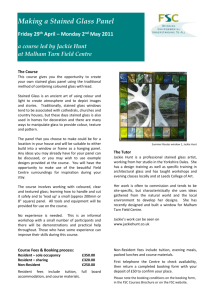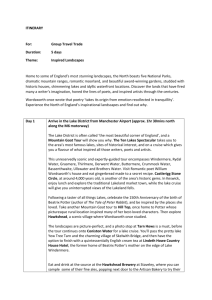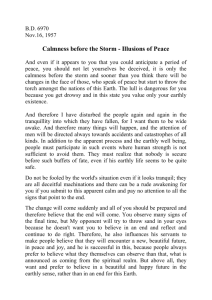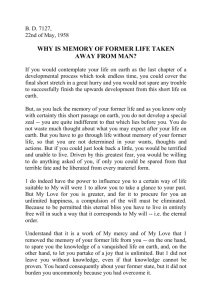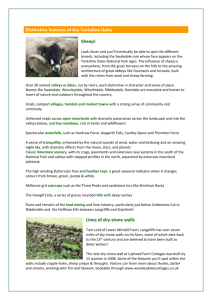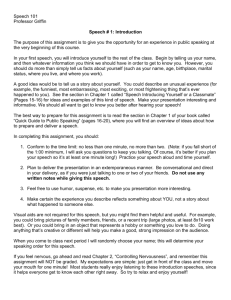1 33 Sunday in Ordinary Time, Year B
advertisement
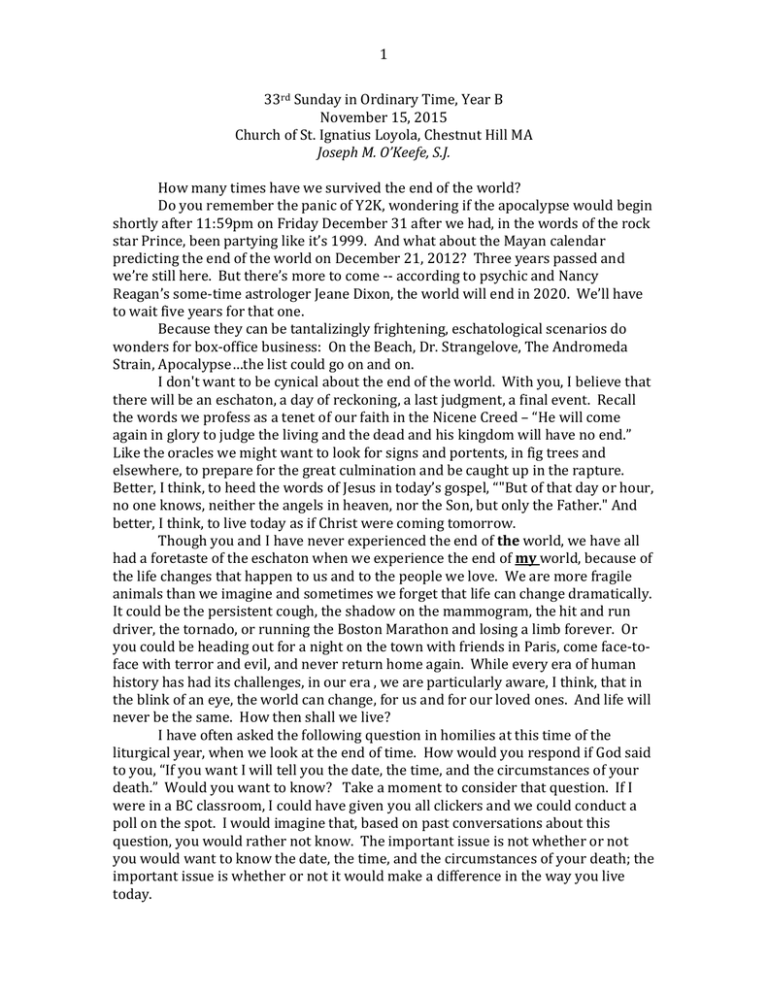
1 33rd Sunday in Ordinary Time, Year B November 15, 2015 Church of St. Ignatius Loyola, Chestnut Hill MA Joseph M. O’Keefe, S.J. How many times have we survived the end of the world? Do you remember the panic of Y2K, wondering if the apocalypse would begin shortly after 11:59pm on Friday December 31 after we had, in the words of the rock star Prince, been partying like it’s 1999. And what about the Mayan calendar predicting the end of the world on December 21, 2012? Three years passed and we’re still here. But there’s more to come -- according to psychic and Nancy Reagan’s some-time astrologer Jeane Dixon, the world will end in 2020. We’ll have to wait five years for that one. Because they can be tantalizingly frightening, eschatological scenarios do wonders for box-office business: On the Beach, Dr. Strangelove, The Andromeda Strain, Apocalypse…the list could go on and on. I don't want to be cynical about the end of the world. With you, I believe that there will be an eschaton, a day of reckoning, a last judgment, a final event. Recall the words we profess as a tenet of our faith in the Nicene Creed – “He will come again in glory to judge the living and the dead and his kingdom will have no end.” Like the oracles we might want to look for signs and portents, in fig trees and elsewhere, to prepare for the great culmination and be caught up in the rapture. Better, I think, to heed the words of Jesus in today’s gospel, “"But of that day or hour, no one knows, neither the angels in heaven, nor the Son, but only the Father." And better, I think, to live today as if Christ were coming tomorrow. Though you and I have never experienced the end of the world, we have all had a foretaste of the eschaton when we experience the end of my world, because of the life changes that happen to us and to the people we love. We are more fragile animals than we imagine and sometimes we forget that life can change dramatically. It could be the persistent cough, the shadow on the mammogram, the hit and run driver, the tornado, or running the Boston Marathon and losing a limb forever. Or you could be heading out for a night on the town with friends in Paris, come face-toface with terror and evil, and never return home again. While every era of human history has had its challenges, in our era , we are particularly aware, I think, that in the blink of an eye, the world can change, for us and for our loved ones. And life will never be the same. How then shall we live? I have often asked the following question in homilies at this time of the liturgical year, when we look at the end of time. How would you respond if God said to you, “If you want I will tell you the date, the time, and the circumstances of your death.” Would you want to know? Take a moment to consider that question. If I were in a BC classroom, I could have given you all clickers and we could conduct a poll on the spot. I would imagine that, based on past conversations about this question, you would rather not know. The important issue is not whether or not you would want to know the date, the time, and the circumstances of your death; the important issue is whether or not it would make a difference in the way you live today. 2 Last March I came across an article in the New York Times, part of a series about end-of-life issues. It was written by David Malham, a retired grief therapist, who had been diagnosed with A.L.S. and was facing imminent death. The article is entitled “Momento Mori,” a reference to the practice of reflection on mortality as a means of considering the vanity of earthly life and the transient nature of all earthly goods and pursuits. In the article, Malham wrote about contemporary culture, “It’s not that we forget that we will die; it’s that we work hard to not remember it.” Malham recommended another approach. He ended the article with this exhortation, an important message when the scriptures lead us to think about the end times. He wrote, “We want to be (lightly, only lightly) aware of death not because our story will end, but because the stories of those we hold dear will end, perhaps before ours. The awareness of premature or unexpected endings can motivate us to routinely demonstrate our love to those important to us.” He continued, and this is my favorite line, “Let’s not save our affection, as if a rare wine, for special occasions. Give and receive it as essential nourishment.” The specter of death, my death or the death of others, frightening as that can be, is an invitation to love more deeply, it is a summons to live more authentically, it is call to grace and wisdom. When we have run our life’s course and God calls us home, may we be counted among those whom Daniel mentions in today’s first reading: the wise who shall shine brightly like the splendor of the firmament, and those who lead the many to justice and who are like the stars forever.
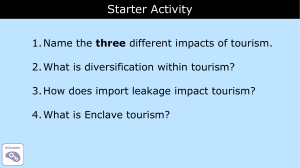
![Ecotourism_revision[1]](http://s2.studylib.net/store/data/005398532_1-116d224f2d342440647524cbb34c0a0a-300x300.png)
